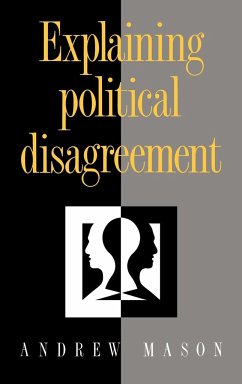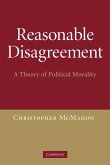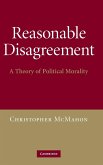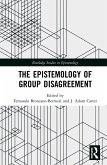This book considers a variety of explanations of why political disagreement is so extensive and persistent. The author examines variants of the 'contestability' and 'imperfection' conceptions which have dominated political theory: the idea that political disagreement is so pervasive because of its value-ladenness; that key political concepts are essentially contested; that those who occupy very different political positions fail to understand each other. He argues that we need to develop a framework which borrows elements from both schools of thought, presupposing some form of moral cognitivism, while recognising that many political disputes cannot be resolved to the satisfaction of every reasonable person. Within such a framework he shows how empirical models can be constructed which give an active role not only to the agent's reasons for his or her beliefs, but also to other psychological and sociological considerations.
Table of contents:
Introduction; 1. Differences in values; 2. The notion of an essentially contested concept; 3. The miscommunication thesis; 4. Integrating rational and non-rational explanations; 5. A model for explaining some moral and political differences; Concluding remarks; Appendix.
This book examines a number of different accounts developed by philosophers and political theorists to explain why political disagreement is so extensive and persistent. The author develops a framework which gives a role to the individual's reasons for his or her beliefs, but also to psychological and sociological factors.
Study of the reasons given by political theorists for the existence of intractable political disagreement.
Table of contents:
Introduction; 1. Differences in values; 2. The notion of an essentially contested concept; 3. The miscommunication thesis; 4. Integrating rational and non-rational explanations; 5. A model for explaining some moral and political differences; Concluding remarks; Appendix.
This book examines a number of different accounts developed by philosophers and political theorists to explain why political disagreement is so extensive and persistent. The author develops a framework which gives a role to the individual's reasons for his or her beliefs, but also to psychological and sociological factors.
Study of the reasons given by political theorists for the existence of intractable political disagreement.








